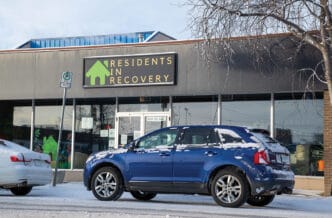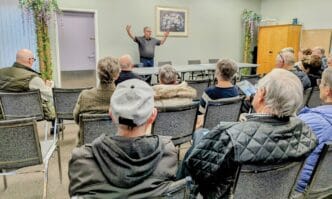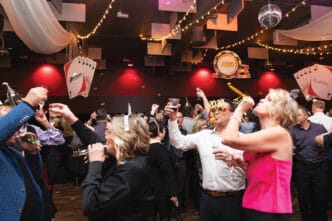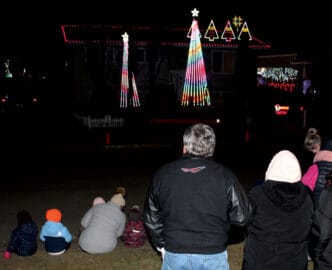Due to a lack of funding, the Residents in Recovery Society has been forced to cease the operation of life-changing recovery programs.
Executive director, Tyler Lorenz, says the decision to discontinue pre and post-treatment sober living and outpatient day programming was brought forward by the board with a heavy heart.
“It was pretty devastating … there’s really no options. We’re the only organization that takes people unfunded. Most places will require you to be on Alberta Works or Sask income support before you come into their program. We do not,” explained Lorenz.
“We’ve seen it over and over again—if they don’t come directly from jail or remand directly to the centre they just don’t come. We talk to a lot of probation officers because a lot of our clients are on condition, so they’re all kind of beside themselves right now,” he said, adding they work closely with probation officers on both sides of the border.
In a Jan. 8 press release Residents in Recovery stated that requests from both provincial governments had been made without success, and the existing funding from the Saskatchewan government was reduced when the cost-of-living increase was removed from the contract the previous year.
Recent changes to income support programs on both sides of the border have hurt the residents’ ability to pay the $540 monthly rent from the shelter allowance funded by these programs.
Donations from the community have also dropped drastically over the past few years.
“We had community donations in 2020—upwards of $200,000 and then 2021 $175,000 and then 2022 $75,000 and then this year down to like $35,000,” said Lorenz, adding that the state of the economy likely plays a role in the decrease.
Residents in Recovery will continue to run their family treatment program and childcare facility. They will be incorporated as separate non-profit organizations, and be operated as usual.
“We have 22 (residents) in the houses. We have three that are returning this week, from treatment programs. We’re trying to work on figuring out a solution for them,” said Lorenz.
“For the day programming, our facilitators here will be getting lay-off notices this week. We do a lot of practicums here, which are definitely going to be affected.”
Michael Sadownick was referred to Residents in Recovery nearly a year ago, and he says their sober living program changed his life, and possibly even saved him.
“I was pretty much drinking myself to death. I ended up getting necrotizing pancreatitis which put me in the ICU for two and a half months and it gave me Type 1 diabetes,” said Sadownick.
“That was two years ago. I wasn’t able to quit drinking on my own. I continued to drink and get pancreatitis up until I put myself into detox at Larsen House in Saskatoon and they referred me to Residents in Recovery sober living.”
He said he arrived at Residents in Recovery with no GED, no learner’s licence, very little education, and no support from any family members. He had never been sober for longer than a month or two in his adult life.
Now, less than a year later, with their support he was able to obtain his GED and learner’s licence.
He was also able to reconnect with his father, which he says is a very important stepping stone in his journey.
“Everything that this program has done—it saved my life. Like I don’t know where I would be right now, I would probably … be homeless or in the hospital,” said Sadownick.
“Without this program being here in Lloydminster, the amount of relapses and deaths that are probably going to happen … even this winter—people having to leave and maybe not being able to find somewhere to go, is going to be staggering I think.”
Sadownick said he struggles to understand the logic of the situation Residents in Recovery is currently facing.
“It doesn’t make any sense why the government wouldn’t fund Residents in Recovery when they’re funding the treatment centres that are referring people here,” said Sadownick.
“The governments are so set on the old treatment model of everybody coming to them to do treatment in these big facilities and it’s just never worked, and it’s not magically going to start working today. Programs like these really make a difference,” said Lorenz, who knows first-hand what is needed to get on, and stay on the right path.
“If people want to help they can write their MLA, write the government. Tell them their thoughts on not funding community-based programs like this,” said Lorenz.
















